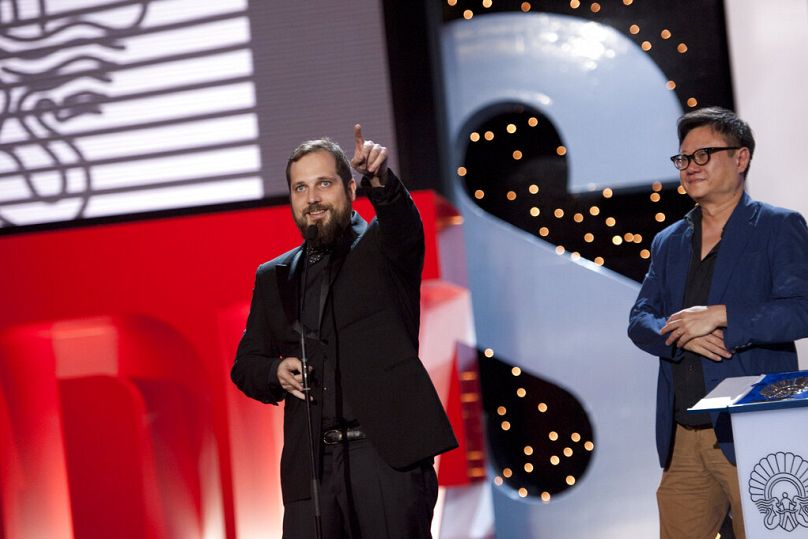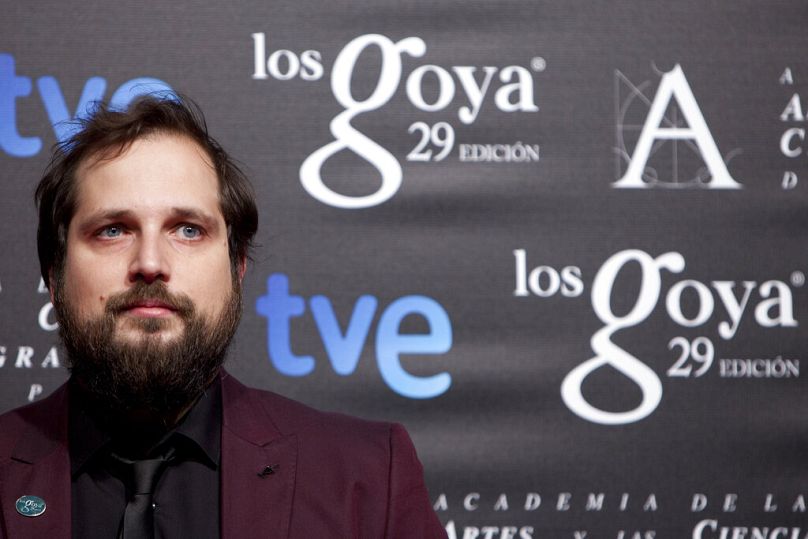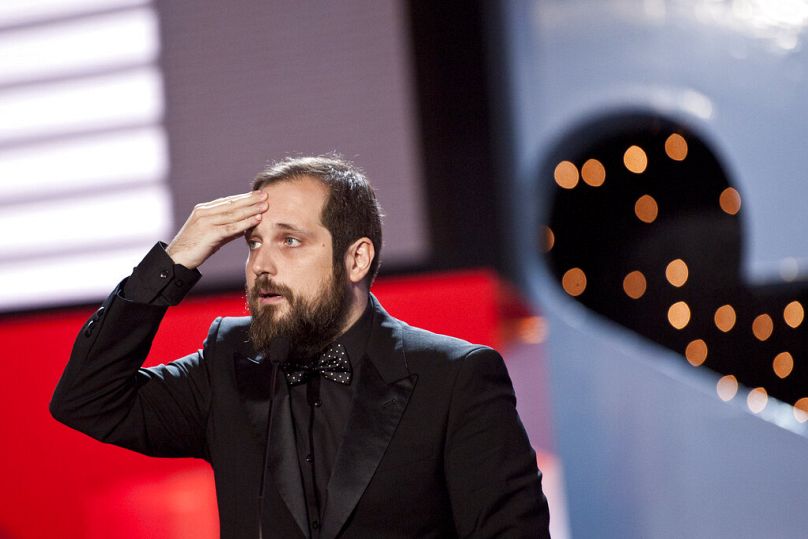The message of "total support for the victims" has been unanimous, but condemnation of Spanish director Carlos Vermut's behaviour is less widely shared. Why is the industry still "cautious"?
A large part of the Spanish film industry gathered on 21 January for the Feroz Awards, one of the most important events in the industry. Actresses, actors, directors and all those invited to the gala walked the red carpet with tension.
 ADVERTISEMENT
ADVERTISEMENT
 ADVERTISEMENT
ADVERTISEMENT
The bitter shadow of Spain's first MeToo case was hanging over them.
Only hours before, the newspaper El País had published an investigation in which three women accused the Spanish director Carlos Vermut, winner of the Golden Shell in San Sebastian for Magical Girl (2014), of sexual violence.
In recent years, the director had become an essential figure in Spanish cinema, an obscure voice recognised for his originality. So the revelation took everyone at the ceremony by surprise.
While some strongly condemned Vermut's behaviour, others tiptoed around the issue.
Up until then, Spanish cinema had been shrouded in silence. Although there were many rumours of sexual abuse or reprehensible behaviour in the industry, very few actresses had spoken out.
"A small industry in which fear triumphs," as Cristina Andreu, president of the Association of Women Filmmakers, described it.
Until now.
Between May 2014 and February 2022, three women - a film student, a production company employee and a cultural sector worker - reported to El País that they had had violent sexual relations with Vermut, to which they had never consented.
None of the women wished to reveal their identities for fear of reprisals in the industry, nor have they ever filed a complaint.
The first testimony dates from 2014. Carlos Vermut was about to become a big name in the industry, having just been nominated at the San Sebastian Festival. The woman worked in a production company and her boss was a friend of Vermut's.
She met the famous director at a party and, after flirting, they went home together. "I admit with some embarrassment that I was impressed that Vermut noticed me, I admired him a lot," the woman told El País.
"When we arrived at my door, he kissed me in a very beautiful and tender way. And I told him to come upstairs," she added.
That is when everything went wrong. The woman says the director jumped on her and started to choke her. She kicked him and tried to push him away. He stopped and told her he didn't deserve that. She was completely confused and said she was sorry, then he continued being violent.
She reported that she was scared and did not know what to do.
The woman says that at the time she only had a feeling that something was wrong, but only later did she realise that she had been sexually assaulted.
Although she had "genital wounds" and her friends advised her to go to hospital and to the police, she did not denounce the director because of his fame and because she feared reprisals at work.
Vermut has defended himself against these accusations, asserting that he has always engaged in rough but consensual sex. He admits to choking people during sex, but always in a consensual way.
The woman claims that some time after this first encounter they had other sporadic sexual relations, but never so violent.
Two other testimonies have come to light. One is from a 21-year-old student who met Vermut through a talk he gave at her university, and the other is from a woman who worked on the crew of one of the director's films.
The student claims that after months of exchanging messages and phone calls, the director asked her for advice on one of his scripts. One day he invited her to watch one of his films at his house so that they could analyse it together, and that is when he jumped on her and tore off her bra.
She froze, Vermut then stopped and told her aggressively to leave the house. They never saw each other again.
The third woman to denounce the director claims that there was never any previous talk between them of having violent sexual relations. "I remember a situation in which he pressed my head very hard against him until I was retching, all accompanied by degrading verbal and physical expressions," she told El País.
When questioned by the newspaper, Vermut admitted that the women may have been afraid to tell him to stop because he was "twice their size" and they may have feared that if they said anything, the situation would get worse.
Although the Spanish film world initially reacted cautiously to the accusations, the echo of voices denouncing the accusations grew louder as the weeks went by.
Last Sunday, two weeks after the publication, the Gaudí Awards were held, bringing the entire film industry to Barcelona. Here, some female directors spoke louder and more clearly.
"We need a paradigm shift: to know that there are limits and that they need to be set," said Spanish filmmaker and writer Pilar Palomero.
The message of "total support for the victims" was unanimous among those present, but condemnation of Vermut's behaviour was rarer. The industry is still "cautious".
While Vermut defended his actions, another Spanish filmmaker, Armando Ravelo, announced that he was ending his career and called on men to "review their behaviour".
After Vermut's publication, several women accused Ravelo on social media of making sexual advances to a minor. He admitted his 'unethical behaviour' and said he understood that this was the end of his career.
But that was all.
Many are wondering why the earthquake caused by MeToo in the United States has taken the form of quicksand in its Spanish version, with few voices of denunciation - and those that exist being drowned out by the "prudence" of the industry.
Is it the perception that no testimonies have come to light about a figure as despicable as former film producer Harvey Weinstein? Or is it a culture of silence imposed by a sector still dominated by male figures?
It is true that reprehensible behaviour or comments are gradually becoming less normalised, but the general belief in the southern European country of "keeping quiet so as not to make the situation more uncomfortable" remains the norm.













